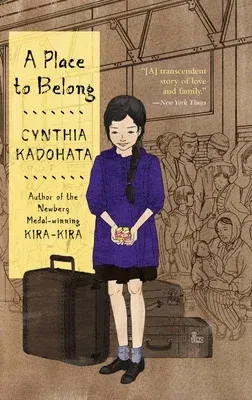Five starred reviews!
"Another gift from Kadohata to her readers." --Booklist (starred
review)
A Japanese American family, reeling from their ill treatment in the
Japanese imprisonment camps, gives up their American citizenship to move
back to Hiroshima, unaware of the devastation wreaked by the atomic bomb
in this piercing and all too relevant look at the aftermath of World War
II by Newbery Medalist Cynthia Kadohata.
World War II has ended, but while America has won the war,
twelve-year-old Hanako feels lost. To her, the world, and her world,
seems irrevocably broken.
America, the only home she's ever known, imprisoned then rejected her
and her family--and thousands of other innocent Americans--because of
their Japanese heritage, because Japan had bombed Pearl Harbor, Hawaii.
Japan, the country they've been forced to move to, the country they hope
will be the family's saving grace, where they were supposed to start new
and better lives, is in shambles because America dropped bombs of their
own--one on Hiroshima unlike any other in history. And Hanako's
grandparents live in a small village just outside the ravaged city.
The country is starving, the black markets run rampant, and countless
orphans beg for food on the streets, but how can Hanako help them when
there is not even enough food for her own brother?
Hanako feels she could crack under the pressure, but just because
something is broken doesn't mean it can't be fixed. Cracks can make room
for gold, her grandfather explains when he tells her about the tradition
of kintsukuroi--fixing broken objects with gold lacquer, making them
stronger and more beautiful than ever. As she struggles to adjust to
find her place in a new world, Hanako will find that the gold can come
in many forms, and family may be hers.

